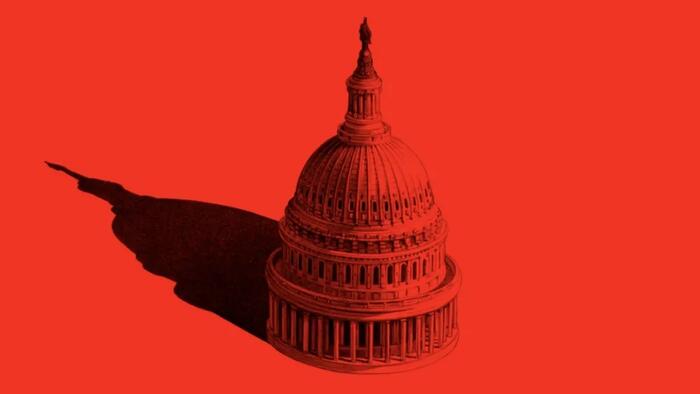The Democratic Party is facing significant backlash and a growing perception of disconnect from the electorate. There is an emerging narrative that Democrats are unable to accept the results of elections, particularly after recent defeats, and are indulging in a form of denial. Observers note similarities to psychopathic tendencies where persistent leaders assume that rejection of their policies implies a need for more persuasion, rather than an outright “no.” The prevailing attitude among certain progressives seems to be a belief that the American public’s reluctance to embrace their candidates or ideologies is rooted in ignorance rather than genuine dissent. Such an assumption has been critiqued as intellectually arrogant, especially in light of the significant electoral losses Democrats have experienced. Common sense suggests a reevaluation of their political approach, yet evidence indicates a stubborn refusal to adapt or consider the electorate’s true desires.
As Donald Trump’s cabinet appointments begin to take shape, a palpable fear has gripped portions of both the Democratic establishment and some traditional GOP members. The media, which often aligns with the established political order, is ramping up efforts to discredit various Trump appointees through a stream of allegations and negative press aimed at figures like RFK Jr., Elon Musk, and Vivek Ramaswamy among others. This coordinated push appears to be driven by concern that these appointees embody a threat to the status quo and are intent on implementing substantial change. In what could be a historic struggle, Trump seems ready to face fierce resistance not only from Democrats but also from traditional Republicans, though he possesses the strategic advantage of enforcing recess appointments when Congress is out of session.
As a defensive countermeasure, some Democrats have proposed the establishment of a “Shadow Government” or “Shadow Cabinet.” This concept, inspired by a similar structure in the UK, would see a cluster of unelected Democratic leaders critique and fight against Trump’s policies while offering alternatives. This proposal has generated significant skepticism, particularly in the American context where the idea of a shadow government evokes historical fears of corruption and illegitimacy. The idea that a group of politicians could thrive outside of the elected framework raises substantial constitutional concerns, suggesting a detachment from democratic principles whereby only the elected government should have governance authority. Critics argue this reflects the Democrats’ inability to acknowledge their electoral failures and indicates an aversion to engaging in the political process that voters deemed authoritative.
In the UK, shadow cabinet members play a scrutinizing role without executive power, yet the American political landscape carries different implications. Historical context suggests that the UK’s political dynamics have drifted toward authoritarianism, where dissent is stifled and political alternatives are increasingly marginalized, posing danger for adopting such a framework in the United States. The idea of mirroring UK governance methods demonstrates how out of touch Democratic leaders may be when it comes to understanding their own electorate’s moods and considerations. The transition of many traditional Democratic positions to more radical stances has further alienated voters who might otherwise align with moderate perspectives. Acknowledging the public’s rejection of specific policies would seem to be a more logical response to the Democrats’ plight rather than concocting methods to counter an incumbent government.
Critics of the Shadow Government proposal contend that it is primarily a desperate attempt by Democrats to maintain relevance, allowing them to project an illusion of influence while perhaps lacking any real authority. This engagement can easily be seen as an exercise in political theater rather than substantive governance, as it places emphasis on who could “do the job” better without actually engaging in constructive governance. The proposed shadow leaders could potentially serve as alternative channels for foreign engagements, thereby complicating the integrity of the elected government, raising concerns about legality and constitutional fidelity. The essence of democracy asserts that the government in power has been duly elected, and sidelining governance responsibilities through a shadow structure is a dangerous precedent that undermines legitimate electoral results.
The potential establishment of a shadow government points to broader anxieties within the Democratic establishment about the future of their influence in political dynamics, particularly as the Trump administration gears up for potentially controversial shifts in policy. Many perceive that the Democrats are driven by an overriding fear of losing significant bureaucratic power, which they rely on for maintaining their influence. The notion that they might resort to a shadow cabinet as a means of preserving relevance in this changed political environment underscores their disconnectedness from the broader public sentiment that seems to favor radical change over traditional governance approaches. Observers argue that a major restructuring of government and downsize in bureaucracy are what the Democratic party fears the most, indicating that their proposals may be more about political survival than a genuine desire to serve the American people or engage positively with the electorate.
In conclusion, the Democrats’ proposal for a shadow government epitomizes their struggle to adapt to the results of democratic elections, highlighting a fundamental misconception about the voter base’s expectations and desires. Instead of engaging in earnest soul-searching and reassessment of policy positions, the party appears to be resorting to tactics aimed at delegitimizing opponents and preserving a status quo that the electorate has actively rejected. The portrayal of such a government as a legitimate political body raises serious constitutional questions, challenging the principles of elected representation. The party’s continuous drift toward an increasingly radical approach, ignoring the lessons of recent electoral setbacks, signals a potentially self-defeating strategy. Without a willingness to authentically reconnect with constituents and recalibrate their agenda in alignment with public interests, the Democrats may find themselves further entrenched in political obscurity—a fate reminiscent of their current plight.

